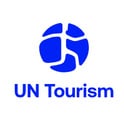UNWTO’s Middle East Members Meet in Jordan
Tourism leaders from across the Middle East have met to guide the sector’s development across the region, including as a driver of inclusive employment and rural development.



The 49th meeting of the UNWTO Regional Commission for the Middle East brought high-level delegations from 12 countries together at the Dead Sea, in the Hashemite Kingdom of Jordan, to assess the current state of tourism in the region and advance shared plans for its future.
Middle East: First Region to Exceed Pre-Pandemic Levels
According to UNWTO data, the Middle East is the first global region to exceed pre-pandemic numbers of international tourist arrivals so far in 2023.
- Overall, international arrivals to destinations in the Middle East during the first quarter of 2023 were 15% higher than in the same period of 2019
- Jordan welcomed 4.6 million tourists in 2022, close to the 4.8 million recorded in 2019, with receipts from tourism totaling US$5.8 billion for the year
- On the eve of the Regional Commission meeting, UNWTO Secretary-General Zurab Pololikashvili met with HRH Crown Prince Al Hussein to congratulate him on the "rapid and remarkable" recovery of Jordanian tourism. The Secretary-General also commended the strong support shown to tourism by the Jordanian Royal Family and the Government, including for ongoing work to diversify the sector.
Tourism has shown its resilience in the face of crisis. And now, recovery is well underway – with all the challenges and opportunities this brings. For the Middle East, tourism represents an unrivalled driver of employment and opportunity, as well as economic diversification and resilience. UNWTO Secretary-General Zurab Pololikashvili
UNWTO Supports Members' Priorities in the Middle East
Participants, representing 12 of the 13 UNWTO Member States in the region, and including 7 Ministers of Tourism, benefitted from a comprehensive overview of the Organization's progress achieving its Programme of Work.:
- Education: Members were given an overview of UNWTO's work to advance one of its key priorities for tourism. Key achievements include an agreement signed with the Kingdom of Saudi Arabia to develop tourism education, including through online courses with the potential to reach up to 300 million people worldwide, and the Jobs Factory, linking 50 employers with 100,000 jobseekers. UNWTO is also launching a first Undergraduate Degree in Sustainable Tourism Management and developing plans to make tourism a high school subject.
- Tourism for Rural Development: The UNWTO Regional Office for the Middle East (Riyadh, Saudi Arabia) is growing as a global hub of tourism for rural development. Members were updated on its work, including the Best Tourism Villages initiative, which is welcoming applications for its third edition.
- Innovation: UNWTO is working with its Members to make the Middle East a hub of tourism innovation. Recent initiatives include the Women in Tech Start-Up Competition for the Middle East, aimed at supporting female entrepreneurs across the region, and the Tourism Tech Adventures forum held in Qatar.
Looking Ahead
In line with UNWTO's statutory obligations, Members from the Middle East agreed:
- Jordan will serve as the Chair of the Commission for the Middle East for the period 2023 to 2025. Egypt and Kuwait will serve as the Vice Chairs.
- The Commission will meet in Oman for its 50th meeting.
RELATED LINKS
- UNWTO Regional Department for Middle East
- Best Tourism Villages
- Tourism on Track for Full Recovery as New Data Shows Strong Start to 2023
- UNWTO Women in Tech Startup Competition: Middle East
About UN Tourism
The World Tourism Organization (UN Tourism), a United Nations specialised agency, is the leading international organisation with the decisive and central role in promoting the development of responsible, sustainable and universally accessible tourism. It serves as a global forum for tourism policy issues and a practical source of tourism know-how. Its membership includes 166 countries, 6 territories, 2 permanent observers and over 500 Affiliate Members from the private sector.
Media enquires: [email protected]
UN Tourism Communications Department
+34 91 567 8100
UN Tourism
